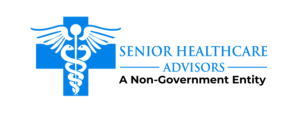Why Choose a Medicare Advantage Plan?
Explore many potential benefits designed to support your health and budget. It may include prescription coverage, hearing care, dental care, vision care, and more.
Call Now: 1-888-809-2440
Explore Potential Benefits
How John & Susan Chose the Right Medicare Advantage Plan
John and Susan’s Story
John and Susan believed in making decisions together, but their health needs differed. John, a retired teacher, needed regular cardiology care, while Susan, an avid gardener, prioritized dental and vision coverage.
- John’s Plan
John chose a Medicare Advantage plan with cardiology coverage, access to his preferred hospital network, and prescription benefits tailored to his needs.
- Susan’s Plan
Susan selected a plan focused on preventive care, including dental and vision coverage, over-the-counter allowances, and wellness perks like gym memberships.
How It Worked
Choosing separate plans lets them each get the right care while staying within budget. “It’s comforting knowing we’re both covered exactly how we need to be,” Susan said.
Your Health, Your Choice
Like John and Susan, you can choose plans that match your unique health priorities, no one-size-fits-all needed.
Speak To A Licensed Sales Agent
Explore Your Medicare Advantage Options
New to Medicare, Relocating, or on Disability?

Why Linda Chose Medicare Advantage for Her Health?
Linda had always managed her health and finances well, but rising medical costs began to overwhelm her. Diagnosed with diabetes, the expenses for regular check-ups and medications were adding up, leaving her worried about the future. A friend recommended a Medicare Advantage plan, and Linda was intrigued, but she discovered her plan covered:
Prescription drugs
Vision Care
Dental Care
Hearing Care
Healthy Groceries
Access to a network of top-rated doctors and specialists, along with preventive care, offered Linda peace of mind. The integrated care management meant she no longer had to stress about coordinating her appointments and treatments.
Speak To A Licensed Sales Agent
Explore Your Medicare Advantage Options
★ What Our Clients Say on Google
See All ReviewsFeatured Testimonials
“They explained my Medicare options clearly and helped me enroll without stress. Professional and kind team.”
“Quick to respond and very knowledgeable. I felt confident choosing a plan after their guidance.”
“They compared plans in my county and found one with my doctors. Smooth and trustworthy experience.”







